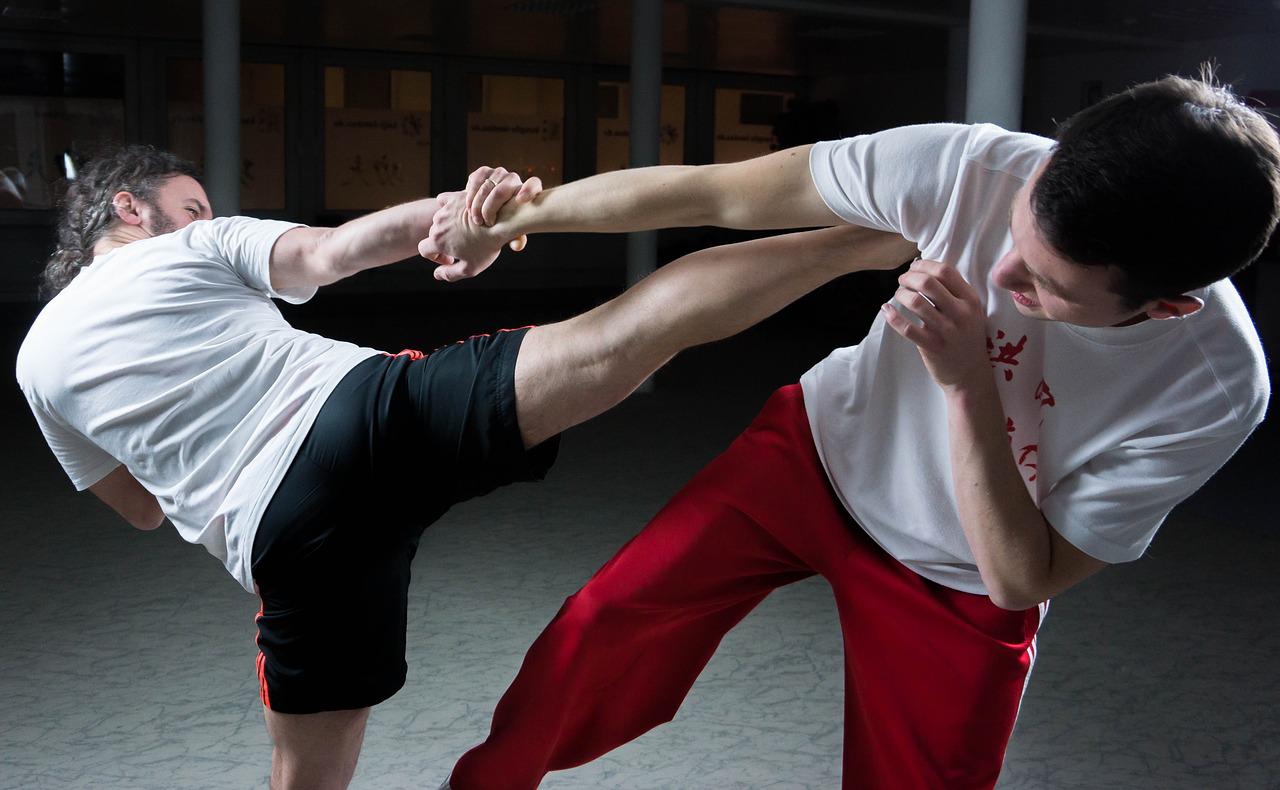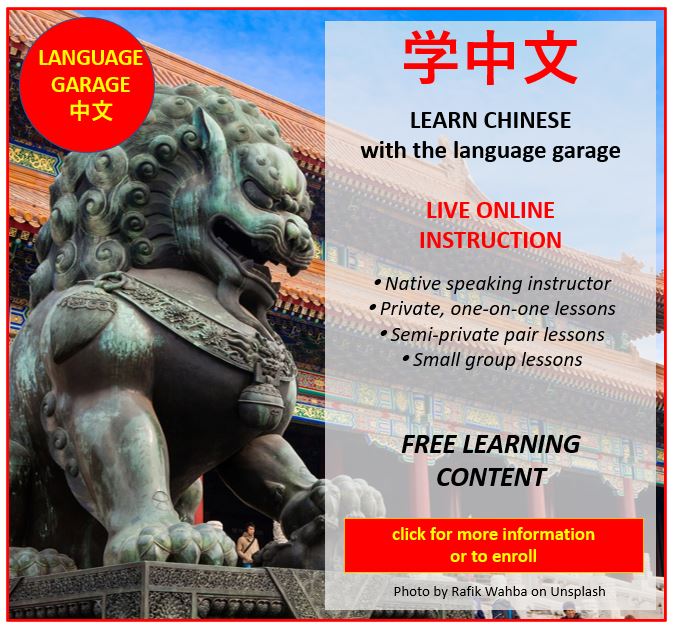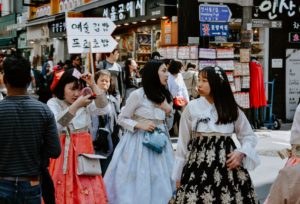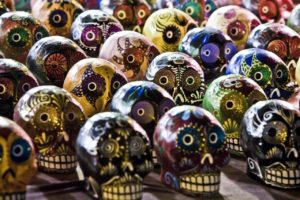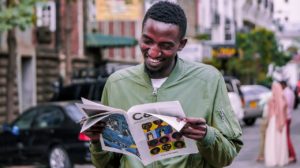Image by Marvin Rheinheimer from Pixabay
In this post we’ll learn basic Chinese vocabulary related to the human body.
我的脸 Wǒ de liǎn: My Face
Let’s start at the top, with words related to the head and face: 头 tóu head, 脸 liǎn face, 眼睛 yǎn jīng eye/ eyes, 眉毛 méi máo eye brow/ eye brows, 眼睫毛 yǎn jié máo eye lashes, 鼻子 bí zi nose, 嘴 zuǐ mouth, 牙齿 yá chǐ tooth/ teeth, 嘴唇 zuǐ chún lip/ lips, 耳朵 ěr duo ear/ ears, 脸颊 liǎn jiá cheek/ cheeks, 额头 é tóu forehead, 下巴 xià ba chin, 脖子 bó zi neck, 头发 tóu fà hair, 胡子 hú zi mustache, 络腮胡子 luò sāi hú zi beard.
- 我有一双棕色/蓝色/绿色的眼睛。
Wǒ yǒu yī shuāng zōng sè / lán sè / lǜ sè de yǎn jīng.
I have brown/blue/green eyes. - 不要张着嘴吃饭!
Bú yào zhāng zhe zuǐ chī fàn!
Don’t eat with your mouth open!
- 我在刷牙。
Wǒ zài shuā yá.
I’m brushing my teeth. - 他长着一双大大的耳朵。
Tā zhǎng zhe yī shuāng dà dà de ěr duo.
He has big ears. - 她长着一个小小的鼻子。
Tā zhǎng zhe yí gè xiǎo xiǎo de bí zi.
She has a small nose. - 我没有络腮胡子,但我嘴唇上留有胡子。
Wǒ méi yǒu luò sāi hú zi, dàn wǒ zuǐ chún shàng liú yǒu hú zi.
I don’t have a beard, but I have a mustache. - 她有很长的头发。
Tā yǒu hěn cháng de tóu fà.
She has very long hair. - 我脖子疼。
Wǒ bó zi téng.
My neck hurts.
胳膊和手 Gē bo hé shǒu: Arms and Hands
Now let’s look at vocabulary related to everything from your arms to your finger tips: 胳膊 gē bo arm/ arms, 手 shǒu hand/ hands, 手指 shǒu zhǐ finger/ fingers, 手肘 shǒu zhǒu elbow, 手腕 shǒu wàn wrist, 指甲 zhǐ jia finger nails, 皮肤 pí fū skin.
- 他有一双大胳膊。
Tā yǒu yī shuāng dà gē bo.
He has big arms. - 你是用左手写字还是用右手写字?
Nǐ shì yòng zuǒ shǒu xiě zì hái shì yòng yòu shǒu xiě zì?
Do you write with your left hand or your right hand? - 孩子们总是把手指放在嘴里。
Hái zi mén zǒng shì bǎ shǒu zhǐ fàng zài zuǐ lǐ.
Children always put their fingers in their mouths. - 他咬指甲。
Tā yǎo zhǐ jia.
He bites his finger nails. - 她皮肤黑/白。
Tā pí fū hēi / bái.
She has dark/light skin. - 哎哟!我伤到了手肘。
Āi you! Wǒ shāng dào le shǒu zhǒu.
Ouch! I hurt my elbow.
我的背疼!Wǒ de bèi téng! My back hurts!
Now let’s look at: 胸 xiōng chest, 乳房 rǔ fáng breast/ breasts, 肩膀 jiān bǎng shoulder/ shoulders, 腰 yāo waist, 背 bèi back, 肚子 dǔ zi belly, 屁股 pì gu butt.
- 他胸部肌肉发达。
Tā xiōng bù jī ròu fā dá.
He has a muscular chest. - 她明天要做乳房检查。
Tā míng tiān yào zuò rǔ fáng jiǎn chá.
She’s getting a breast examination tomorrow. - 她背部疼痛。
Tā bèi bù téng tòng.
She has a sore back. - 那条腰带对我来说太小了。
Nà tiáo yāo dài duì wǒ lái shuō tài xiǎo le.
That belt is too small for my waist. - 我需要少吃点。我的肚子越来越大了!
Wǒ xū yào shǎo chī diǎn. Wǒ de dǔ zi yuè lái yuè dà le!
I need to eat less. My belly is getting big! - 他的肩膀很结实。
Tā de jiān bǎng hěn jiē shi.
He has strong shoulders. - 哎哟!我摔到屁股了!
Āi you! Wǒ shuāi dào pì gu le!
Ouch! I fell on my butt!
大长腿 Dà cháng tuǐ Long Legs
Now let’s look at vocabulary related to your legs and feet. 腿 tuǐ leg/ legs, 大腿 dà tuǐ thigh/ thighs, 臀部 tún bù hip/ hips, 膝盖 xī gài knee/ knees, 脚 jiǎo foot/ feet, 脚踝 jiǎo huái ankle/ ankles, 脚趾 jiǎo zhǐ toe/ toes.
- 她有双大长腿。
Tā yǒu shuāng dà cháng tuǐ.
She has long legs. - 我的大腿很粗,这条裤子太小了。
Wǒ de dà tuǐ hěn cū, zhè tiáo kù zi tài xiǎo le.
My thighs are too big for these pants! - 膝盖受伤很痛。
Xī gài shòu shāng hěn tòng.
Knee injuries are painful. - 我扭伤了脚踝。
Wǒ niǔ shāng le jiǎo huái.
I twisted my ankle. - 她的脚很小。
Tā de jiǎo hěn xiǎo.
Her feet are very small. - 我伤到了脚趾。
Wǒ shāng dào le jiǎo zhǐ.
I hurt my toe.
内脏器官 Nèi zàng qì guān: Internal Organs
Now let’s look at some basic vocabulary for internal organs: 心脏 xīn zàng heart, 肺 fèi lung/ lungs, 脑 nǎo brain, 喉咙 hóu long throat, 胃 wèi stomach, 肠 cháng intestines, 肝脏 gān zàng liver, 肾 shèn kidney, 血 xiě blood, 静脉 jìng mài vein, 动脉 dòng mài artery, 骨头 gú tou bone, 肌肉 jī ròu muscle, 神经 shén jīng nerves.
- 心脏通过动脉和静脉输送血液。
Xīn zàng tōng guò dòng mài hé jìng mài shū sòng xuè yè.
The heart pumps blood through arteries and veins. - 我们呼吸时肺部充满空气。
Wǒ men hū xī shí fèi bù chōng mǎn kōng qì.
Our lungs fill with air when breathe. - 大脑和神经是神经系统的一部分。
Dà nǎo hé shén jīng shì shén jīng xì tǒng de yī bù fèn.
The brain and nerves are part of the nervous system. - 我的胃是空空的。
Wǒ de wèi shì kōng kōng de.
My stomach is empty. - 我的肚子饱饱的。
Wǒ de dǔ zi bǎo bǎo de.
My stomach is full. - 她需要肾移植。
Tā xū yào shèn yí zhí.
She needs a kidney transplant. - 他的肝脏不健康,因为他喝太多酒。
Tā de gān zàng bú jiàn kāng, yīn wèi tā hē tài duō jiǔ.
His liver is not healthy because he drinks too much. - 我们的骨骼需要钙。
Wǒ men de gǔ gé xū yào gài.
We need calcium for our bones. - 肠道是消化系统的一部分。
Cháng dào shì xiāo huà xì tǒng de yī bù fèn.
The intestines are part of the digestive system. - 我跑步后腿部肌肉酸痛。
Wǒ pǎo bù hòu tuǐ bù jī ròu suān tòng.
My leg muscles are sore after I run.
Do you want to learn Chinese?
Check out our other posts on Chinese language, culture, and more. And if you’re looking for convenient and affordable live Chinese lessons with a real teacher, check out The Language Garage. Our lessons are given online in a virtual classroom, so it doesn’t matter where you live or work – we can come to you. And we have flexible options, with a free trial so that you can decide if there’s a fit. Check us out!
